 Early this spring, we sat with Professor Ayobami Laniyonu, Assistant Professor at CrimSL and one of the faculty advisors for the Research Cluster for the Study of Racism and Inequality, and CrimSL Ph.D. candidate Sabeen Kazmi, one of the committee members, to talk about the Cluster, its work, and what we can expect from the group in the upcoming year.
Early this spring, we sat with Professor Ayobami Laniyonu, Assistant Professor at CrimSL and one of the faculty advisors for the Research Cluster for the Study of Racism and Inequality, and CrimSL Ph.D. candidate Sabeen Kazmi, one of the committee members, to talk about the Cluster, its work, and what we can expect from the group in the upcoming year.
The Research Cluster for the Study of Racism and Inequality
The Research Cluster for the Study of Racism and Inequality ( or "the Cluster”) was created in March 2021 to “build knowledge about the historical and ongoing legacies of racism, colonialism, gendered and sexual violence, exclusion and other forms of structural inequality by providing a research platform for interrogating the roots of social disenfranchisement.” (Vision Statement, CrimSL website)
“The idea was to investigate structural inequality and discrimination in the Centre, broadly in the University, and more generally in Canadian society,” Professor Laniyonu says.
To reach its goals, the Cluster has created enriching programming and opportunities for students to be involved and immerse themselves in the important work of challenging the legacies of racism, colonialism, and various manifestations of social inequality. Some of the Cluster's programs include:
- A research grants program that provides seed funding to students whose research aligns with the Cluster’s themes
- The research fellowship program, an opportunity for the fellow to work alongside the Cluster on research projects, and finally,
- The Works in Progress series, an inclusive platform for students to share their current work with the CrimSL community and beyond
As campus activities return to normalcy, the Cluster aims to continue cultivating these programs and eventually expand its offerings, including a speaker series.
The 2021-2022 Advisory Committee was comprised of three faculty members, Professor Ayobami Laniyonu, Professor Beatrice Jauregui, and Professor Kamari Clarke; three current CrimSL Ph.D. students, Kadija Lodge-Tulloch, Huibin Lin, and Sabeen Kazmi; and undergraduate administrative assistant, Emiri Katakawa.
Works in Progress
The Works in Progress series is one of the Cluster’s programs, which offers opportunities for graduate students and advanced undergraduate students to present their current work and research, regardless of format, and receive professional support from their peers.
“The idea is to advance the professionalization of students by providing feedback and [creating] a community that is focused and attentive to issues [the Cluster is committed to investigating],” Professor Laniyonu explains.
This spring, the CrimSL community joined in on presentations by Kadija Lodge-Tulloch, Huibin Lin, Emiri Katakawa and Jeffrey Wong on various themes, including intersections between identity and research, academic insecurity, and racialized communities' perceptions of safety and police.
The Cluster welcomes proposals from students who would like to present their work in progress.
Looking Back and Looking Ahead
Despite the interruptions caused by the pandemic and the year mostly virtual, the Cluster has numerous achievements to celebrate. Its programs were launched and started to gain interest amongst students. The Works in Progress series launched virtually and started to build its audience and connections with other scholars within the Centre and beyond. Furthermore, the Cluster opened its search for its very first research fellow. The Cluster also considers its work behind the scenes a success, including establishing governance and institutionalized working relationships between students and faculty.
Looking ahead, the Cluster is excited for an action-packed 2022-2023 academic year.
“There are lots of opportunities for the Cluster to engage the broader campus community, local government and local communities, so we look forward to all of these,” Professor Laniyonu shares enthusiastically.
The CrimSL community can look forward to events throughout the year, including a speaker series and a launch event. They can also anticipate more opportunities and avenues for graduate students and future projects, such as working with Ministries of justice and engaging with local communities and organizations that fit with the Cluster’s themes and values.
Getting Involved
Students are encouraged to get involved with the Cluster in different ways, whether through upcoming events or in governance. Students interested in leading can apply to be a part of the committee in the annual elections held in September.
Getting involved with the Cluster is “an opportunity to work closely with the [CrimSL] faculty on research. It helps us develop our scholarship, writing, thought process, pedagogy, and so on,” Sabeen mentions. “One of the exciting things about the Cluster is that the Student Committee members change every year, which allows for fresh perspectives and new voices. I’m excited about what the next cohort of students will do with the Cluster,” she adds.
Students interested in getting involved can reach out to the Cluster’s faculty advisors and previous student committee members for more information.


